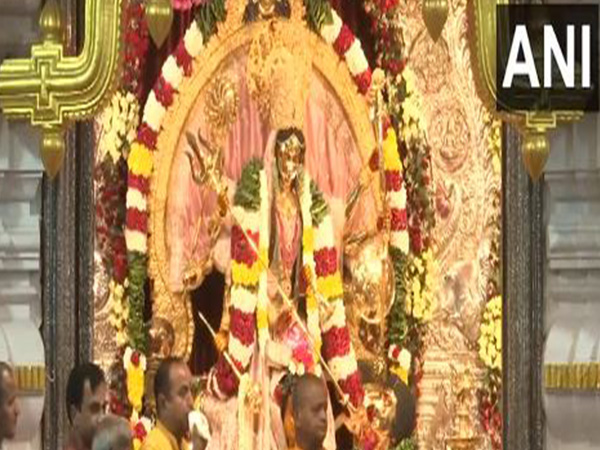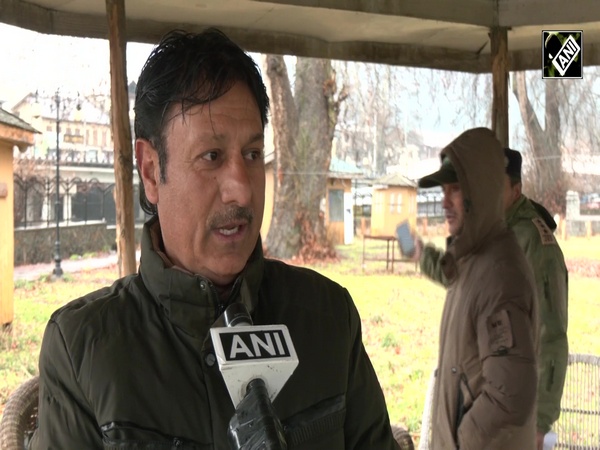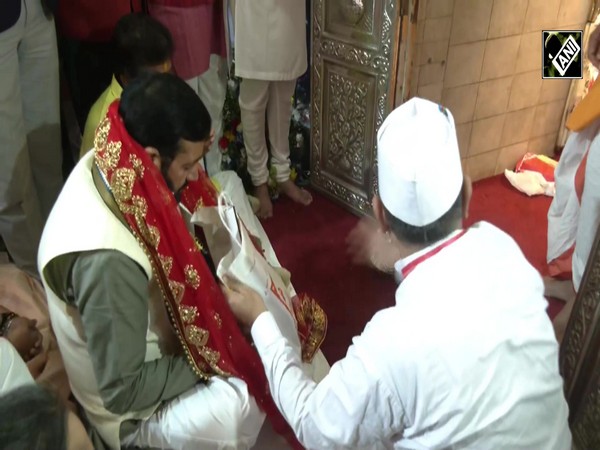Delhi HC seeks Centre's response on Alapan Bandyopadhyay's review plea
Apr 22, 2022

New Delhi [India], April 22 : The Delhi High Court on Friday issued notice on a plea filed by former West Bengal Chief Secretary Alapan Bandyopadhyay seeking a review of the Court's earlier order dismissing his plea in connection with the transfer his application from Central Administrative Tribunal (CAT) Kolkata bench to Delhi branch.
The bench of Justice Rajiv Shakdher and Justice Jyoti Singh on Friday sought the response of the respondents/Centre Government on his plea and listed the matter for May 20, 2022, for further hearing. ASG Vikram Banerjee on Friday opposed the plea and submitted that the court earlier had heard the argument at length.
Earlier, the bench headed by former chief Justice DN Patel had pronounced the order and said we see no reason to interfere in the order of CAT.
Earlier, Solicitor General Tushar Mehta had appeared for the Central government in the matter and said that the tribunal has an exclusive power to transfer the case from one bench to another. He also said that the chief secretary in May Last year chose to not receive the Prime Minister at the Kalaikunda airbase in West Midnapore district, and then skipping his review meeting to assess the damage caused by Cyclone Yaas, was a great violation.
Alapan Bandyopadhyay in January had approached the Delhi High Court challenging the order passed by the principal bench of CAT transferring his case from Kolkata to Delhi. He submitted that the Impugned Order was passed in complete violation of the principles of natural justice, equity and fair play inasmuch as the Petitioner was not even granted a right to file its written objections to the Transfer Petition. The Transfer Petition was allowed on the very first day of its listing, stated Bandhopadhyay's plea.
On October 22, 2021, the Chairman of the Central Administrative Tribunal, Principal Bench at New Delhi transferred the application filed by the Petitioner before the Central Administrative Tribunal, Kolkata Bench to the Principal Bench in the national capital.
The plea stated that the petitioner is the former Chief Secretary to the Government of West Bengal and retired on 31st May 2021. The petitioner ordinarily and permanently resides in Kolkata. Therefore, the Petitioner had unqualified rights under Rule 6(2) of the Central Administrative Tribunal (Procedure) Rules, 1987 to file the Original Application before the Kolkata Bench. Further, the entire cause of action in respect of the Original Application, as well as the underlying disciplinary proceedings against the Petitioner, occurred within the jurisdiction of the Kolkata Bench, the plea said.
There were absolutely no material circumstances that warranted the transfer of the original application to New Delhi. The respondents - Union of India has sought transfer on the ground that the department is based in New Delhi. However, the impugned order fails to appreciate that situs of the office of the Union of India or the convenience of the Union of India can never be a valid ground to transfer an original application.
On the contrary, the convenience of a retired officer ought to have been given precedence. Further, as set out in detail in the writ petition, the Chairman of the Principal Bench exceeded the jurisdiction under Section 25 of the Act while dealing with the Transfer Petition by making an observation on the merits of the case which has absolutely no basis.
On May 31, Bandyopadhyay superannuated. Subsequently, an inquiry was initiated against him by the Centre for not attending a meeting chaired by the Prime Minister on May 28, 2021, for assessing the loss of life and property caused by the cyclonic storm Yaas.
After the inquiry order, Bandyopadhyay moved CAT's Kolkata Bench challenging it. Thereafter, the Centre moved the Principal Bench for the transfer of the case here and on October 22 order was passed allowing the transfer petition.
Bandyopadhyay then moved the High Court against CAT, New Delhi order. The High court on October 29, took strong objection to the manner in which the CAT Principal Bench favoured the Central government in transferring Bandyopadhyay's case to itself and quashed CAT's order. Thereafter, the Centre approached the apex court against the High Court order.
The apex court said that the Calcutta High Court did not have the jurisdiction to decide the plea of Bandyopadhyay. It also granted liberty to Bandyopadhyay to approach the jurisdictional High Court (Delhi) to challenge the order of the CAT Principal Bench.

















